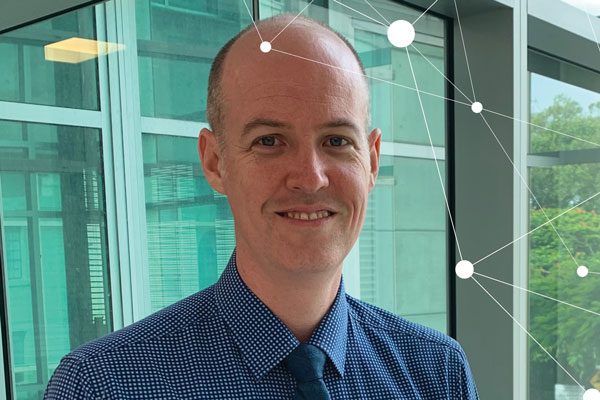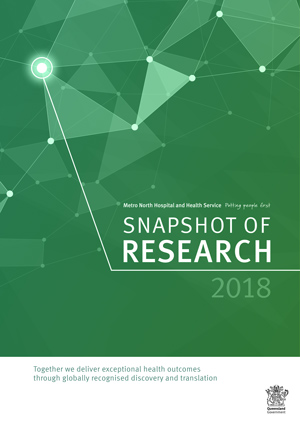Stuning new skin cancer immunotherapy treatment on trial
Results of a new immunotherapy treatment being trialled at Royal Brisbane and Women’s Hospital Cancer Care Services are signalling a major advancement in the treatment of patients with advanced squamous-cell carcinoma (SSC) skin cancer.
Senior Medical Oncologist Dr Brett Hughes is leading the clinical trial at RBWH as part of a global study which will evaluate the effectiveness of Cemiplimab, an anti-Programmed cell Death 1 (PD-1) immunotherapy treatment.
lmmunotherapy, which allows the patient’s own immune system to fight cancer, has revolutionised cancer treatment over the past decade and has made a significant impact on survival rates in other cancers.
However, for patients with incurable SSC, a poor prognosis of less than 12 months is common with standard chemotherapy as until now there have been no effective therapies.
“Since commencing the trial we’ve found an impressive response rate to the drug of 47 per cent, one of the highest responses to immunotherapy of all cancer types and much higher than what we would expect from chemotherapy,” Dr Hughes explained.
“Many patients have responded within the first two months of treatment and we are seeing the cancer being controlled on average for more than 18 months after commencing treatment – four times as long as we expect chemotherapy to be effective for.”
While incurable skin cancers are uncommon in other parts of the world, skin cancer rates in Australia are higher than average, making the benefits of this new treatment important locally.
“The benefits of this drug for patients are far superior to that expected from chemotherapy, and with fewer side effects.”
“The side effects of immunotherapy are manageable for the majority of patients. We are seeing our patients getting back to work and living their lives throughout treatment.”
Recruitment of patients into the trial, which does not include a placebo, is ongoing, with 16 patients from across Queensland already involved.
“The trial is not randomised and there is no placebo, and the results are so effective that it would almost be unethical to randomise such a trial in the future,” Dr Hughes said.
“Patients are able to see the results themselves, they are visible and exciting to see.”


